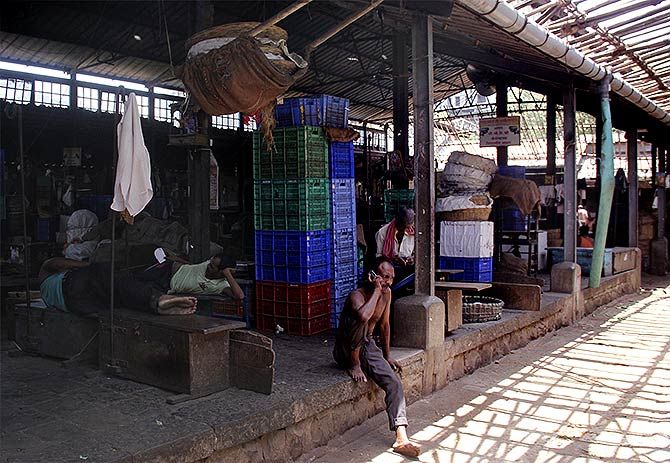For the first time in the state's history, over 10,000 thousand farmers have gone on strike, says N Suresh.

The beginning of June 2017 has been a landmark one for Maharashtra.
For the first time in the state's history, over 10,000 thousand farmers went on strike.
Maharashtra has seen Shetkari Sanghatna leader Sharad Joshi's farmers movement before, but a strike called by the state's farmers is the first of its kind.
On June 3, the newspapers reported that the farmers had called off their strike. Chief Minister Devendra Fadnavis, the media said, had accepted 70 percent of the farmers' demands and assured them that he would set up a committee to monitor their demands. Some journalists praised Fadnavis for the 'first-ever largest loan waiver.'
The fine print, which was not disclosed, was that only the loans of small farmers would be waived. Moreover, the loan waiver decision would only be taken by the committee.
Maharashtra's Agriculture Minister Sadabhau Khot and Fadnavis worked hard behind the scenes to break the farmers' strike.
On the night of June 1, when the chief minister called a press conference, his body language was that of a nervous leader. He is at the helm of affairs, but the controls seemed to be slipping out of his hands. It is no surprise that Fadnavis put pressure on Khot.
Ajit Navle, the general secretary of the Maharashtra Kisan Sabha, denied that the farmers had withdrawn the strike, but the media was in a rush to declare that the strike had ended.
Kisan Baburao 'Anna' Hazare also jumped into the fray, claiming support for the farmers. But the farmers were quick to anticipate the politics of this move, asked Hazare where he had been until then, and asked him to stay put.
The farmers made it clear that they had not appointed Hazare to mediate or speak on their behalf to Fadnavis.
The media coverage of the farmers' strike was one sided. Most media in the state, headed by elite upper caste editors, appear to have pledged their support for Fadnavis and Prime Minister Narendra Modi.
Hence, it should be no surprise that the media sees a conspiracy in every revolt against the Maharashtra government -- be it the Marathas' silent morchas or the farmers' strike.
There is no journalistic effort to delve deep into the crisis facing that particular section of society and try to understand their problems.
Instead, it is as if they have sought sanction to pass judgement on how the revolt will flop and to declare the struggle as futile.
The farmers have been on an indefinite protest demanding a complete loan waiver, implementation of the Swaminathan Committee's recommendations, an increase in the procurement price of milk and a pension scheme.
In Maharashtra, the farmers had given advance notice of calling a strike from June 1. But this was ignored. In the current circumstances, when so much political drama unfolds behind the scenes, the farmers needed to draw attention to their situation.
Maharashtra, after all, is the state with the highest number of farmers' suicides.
In 2015, after a less than normal monsoon, the state government reluctantly declared a drought. Many citizens believe (thanks to the media coverage) that too many subsidies were given to the farmers, that the farmers were being pampered.
However, only a few thousand of Maharashtra's 15 million farmers are wealthy. Hundreds of thousands of farmers are poor, who do not get the right price for their produce.
The farmers' strike has exposed both the mainstream media and a scared chief minister.
If the farmers capitalise on their movement, it will be their biggest victory.
It may take some time, but an effective strategy can help them win this game.
IMAGE: Mumbai's Byculla vegetable market wears a forlorn look as the farmers strike in Maharashtra continues. Photograph: Arun Patil










